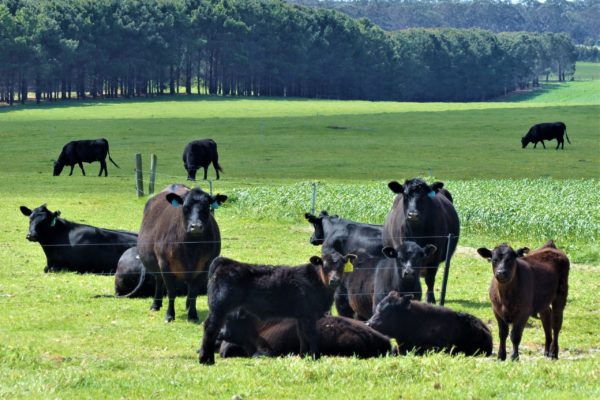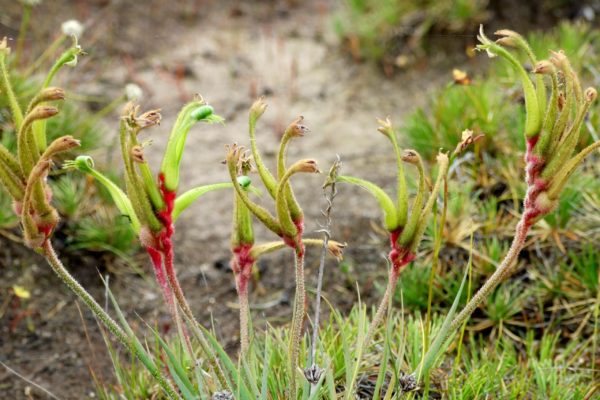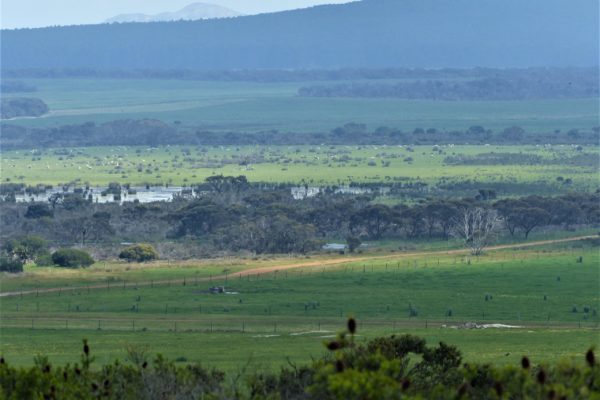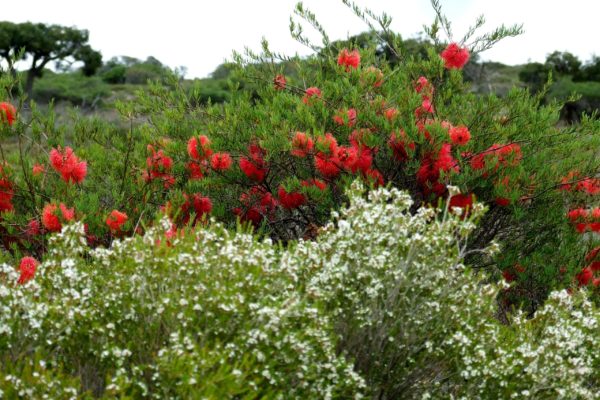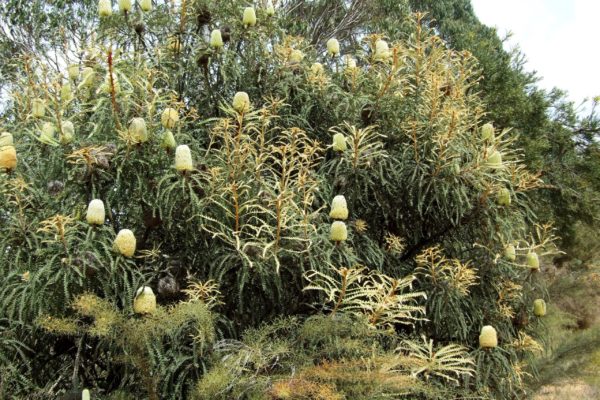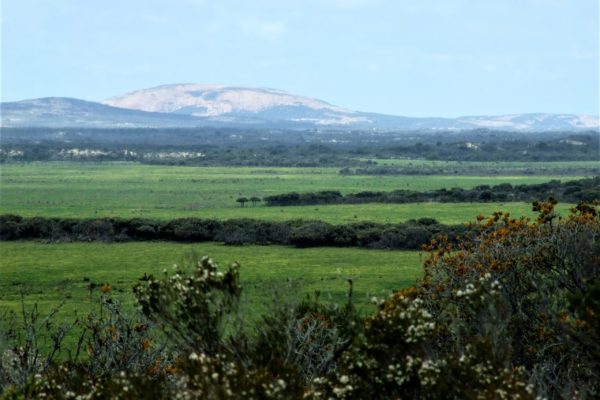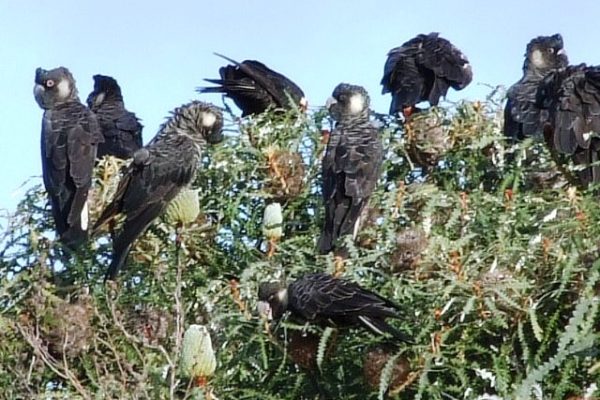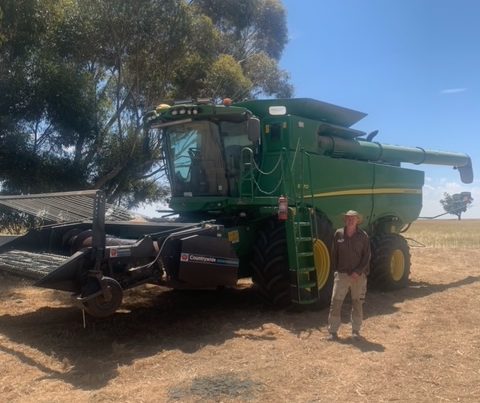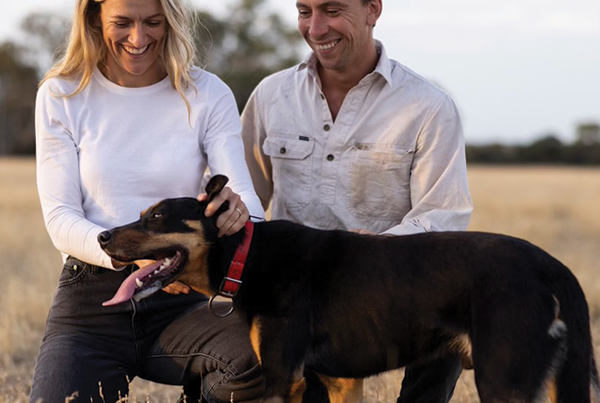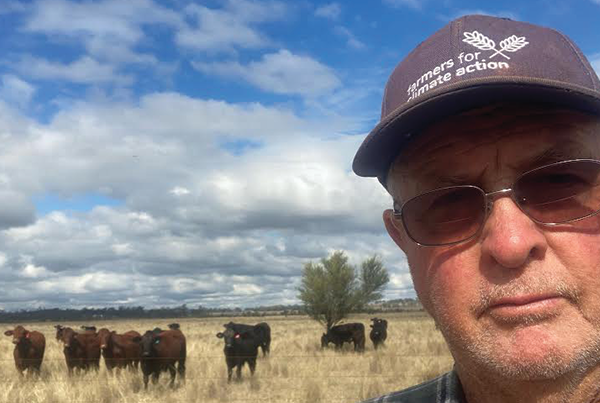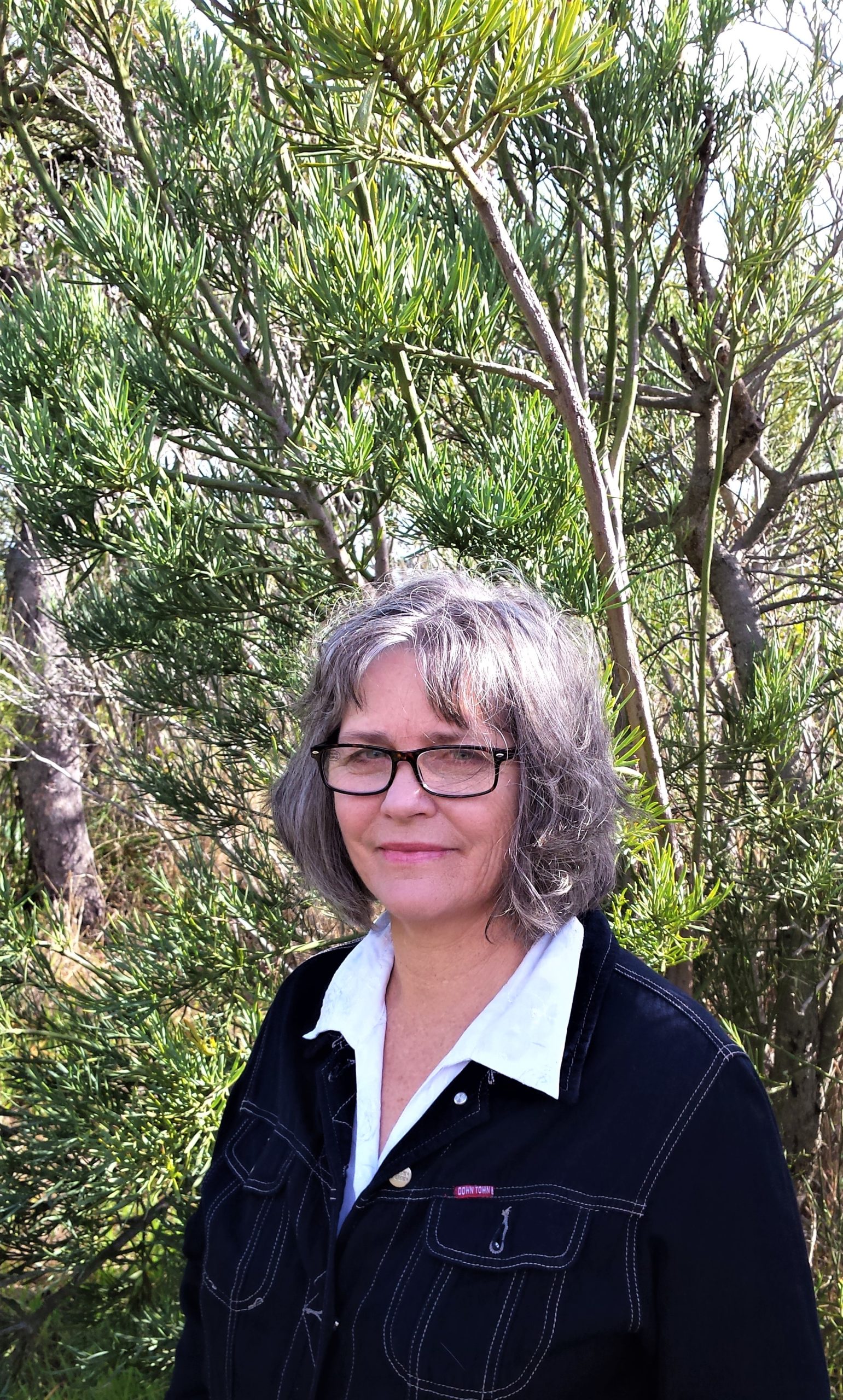
At a glance
Who: Nicole and Phil Chalmer with son and daughter in law Rohan and Anita Chalmer
What: mixed farm, 4800 acres farming, 1200 acres native vegetation, 625mm rainfall zone
Where: South-East Coast of WA, 60km east of Esperance
Can you tell us about your property?
Coronet Hill: Been farming there for 25 years, started out with only cattle and planted the whole place to perennial grasses. Since 2014 become mixed farm with 400 angus/gelbvieh cows, 700 ha wheat and 1800 merino ewes to produce crossbred.
What first got you thinking about climate change?
We both have Ph.D.’s and learned about climate change when we were at university in the ’70s. There have been past warnings and people knew about these interactions of humans and climate for thousands of years. Climate change has always been at the front of farm decisions.
When we first bought the farm, we set out to base it on perennial pastures to give a longer grazing season and make sure the farm can maintain moisture during drier periods by increasing soil organic matter and carbon – which changed from .5% to 1.5-2.5 % over 15 years.
How has climate change impacted on your farm business?
When we moved here it was the driest year on record and have had 10 years since then of periods of below-average rainfall. Temperatures during the day have been increasing, and we had an extreme heatwave (48-50 degrees; average summer temperature is around 28degrees) throughout the district that killed hundreds of trees over a few days. Over 250 Carnaby’s cockatoos(classed as endangered) died over a couple of hours in this extreme heat event. We need to recognize that the whole environment will be affected by heatwaves, not just humans.
What are some of the climate-smart strategies you’ve been employing and how successful have they been?
Ensured water supply is permanent with underground aquifers and monitoring to make sure that it is not drawing down on the water table. Have also tried to drought-proof the property by utilizing perennial pastures and always making sure to not overgraze -used rotational grazing. Looking at using the native vegetation in the biodiversity programs and it helps mitigate temperature at local level to cool the farm down. Minimal use of chemical spray for crops, if get a summer rain event that grows vegetation will graze it down with the livestock rather than chemicals – helps maintain soil Carbon.
Do you use renewable energy on your farm? What are the benefits?
Solar hot water on the house but looking into extending this system with help from the state government which is offering Solar /diesel systems for farms in remoter areas.
If you could send a message about climate change to the Federal Government (in 50 words or less) what would it be?
Human caused climate change is real. Human caused species, ecosystem and biodiversity extinction is real. The solutions include massive scales of Australian and world revegetation, ecosystem protection and soil carbon sequestration on pastoral lands and farms. Swift public and private actions including already proven solutions are needed right now.


